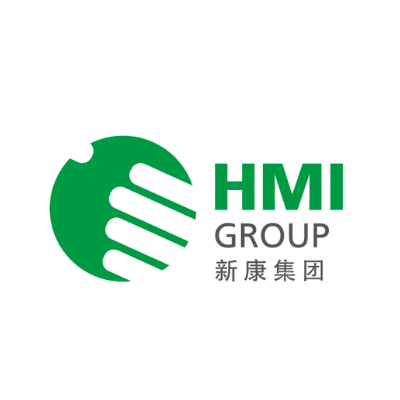SINGAPORE: The F1 Pit Building at Marina Bay, used for Singapore’s Grand Prix races before the pandemic, has been converted into a COVID-19 treatment facility that will start taking in patients from Nov 9.
The 721-bed facility will only take in elderly COVID-19 patients – those who are unvaccinated and above 70 years old, or vaccinated and above 80 years old.
They have to be generally well and should also be independent, without needing assistance in daily activities like going to the toilet or having meals.
“Most of these patients are stable, but they have stable chronic diseases. For example, diabetes, hypertension, (high) cholesterol, but they are elderly, 70 years or more, and are diagnosed with COVID-19,” said medical director of the centre Dr Jonathan Ong.
These patients typically “require a higher level of care”, he added.
Patients will be admitted after assessment by hospitals. They will also be monitored by medical staff round the clock.
With its number of beds and focus on elderly patients, the facility will help to “decongest” public healthcare institutions, Dr Ong said.
Singapore’s soaring COVID-19 cases – with thousands of new infections reported daily – have placed significant strain on its healthcare system. Nearly 90 per cent of the 1,650 isolation beds for COVID-19 patients in public hospitals have been filled.
Health Minister Ong Ye Kung on Saturday said 17 community facilities and private hospitals, with a total of 2,300 beds, have been set aside for COVID-19 treatment.
“We expect to add even more (COVID-19 treatment facility) capacity, reaching around 4,000 beds by the end of this month,” he said in a Facebook post.
The F1 Pit Building treatment facility was set up by the National University Health System with private healthcare group Health Management International, which will also supply doctors and nurses to staff the centre.
The space was provided by the Singapore Tourism Board, and planning and design of the facility by MOH Holdings and Surbana Jurong. Integrated Health Information Systems will provide tech support with more than 80 computers-on-wheels and Mandarin Oriental hotel will curate “a healthy menu” and engage the seniors through activities, said the minister.
The three-storey facility has 721 beds, eight isolation rooms and 12 sick bays.
There are three wards on the second floor and four on the third, and each ward will be manned by up to 17 staff members, said Dr Ong, who is also a consultant with the National University Hospital’s neurology division.
“ELDER-FRIENDLY” WARDS
Patients will be segregated by gender – men will stay on the second floor and women on the third floor. The wards overlook the F1 track and Kallang River area.
Three meals a day are provided and free Wi-Fi is available. A care pack is given to patients with basic necessities like a mug, a toothbrush and toothpaste, as well as face masks, Milo, instant coffee packets and crackers.
Patients also get a towel, a pillow and a personal cabinet with a lock to store their belongings.
Seniors can also take part in daily activities like games and magic shows, as well as use provided materials in the communal areas for reading, light exercise and handicraft.
In conceptualising the facility, the team wanted to ensure it was “elder-friendly”, said Dr Ong.
“From the lighting, to the way that the beds are arranged, to the care packs that we’ve given them, to the activity area where they can participate in daily activities to occupy their time, such as visual therapy, simple exercises,” he said.
“All this we believe will go a long way in preventing the elderly from functionally declining significantly prior to their discharge back to the community. We’re catering to both their mental and physical wellness.”
Beds are set up in pairs, with a set of tables and chairs between them, to “encourage communal chit chat” among the patients, said Dr Ong.
“This is quite a nice concept that we envisaged so that they can care for one another.”
Beds are also equipped with an emergency call button, so patients can call for a doctor or nurse in an emergency.
In the corridors between beds, guiding lights close to the floor light the way to help prevent falls. Grab bars and anti-slip mats are also installed in the toilets.
For privacy, eight changing rooms have been set up at each ward, and these rooms can also be used to conduct swab tests for the patients.
DAILY WARD ROUNDS
The project was first initiated in mid-October, and the team was given about two weeks to set up the facility, said Mr Brian Lim, assistant director with MOH Holdings’ infrastructure projects division.
Since the original lifts at the building were too small for the transfer of patients in a hospital trolley, an industrial construction lift had to be installed, he added.
The facility also has an onsite 24/7 emergency ambulance service with trained paramedics and an ambulance driver, who will transfer patients to the nearest hospital – according to Singapore Civil Defence Force protocols – if necessary.
“While we have catered for such events, we do not foresee this to happen very frequently because part of the medical commitment for this facility is daily ward rounds,” said Dr Ong.
“And we aim to pick up parameters early, address them early, such that they do not deteriorate to the point that we will need to activate this whole chain of events.”
To be discharged from the facility, vaccinated patients will have to clear a polymerase chain reaction (PCR) swab test on Day 6 from when they were confirmed to have COVID-19, and Day 10 for unvaccinated patients.
If they test positive, vaccinated and unvaccinated patients will be discharged on Day 10 and Day 14 respectively.
Patients who test negative but are still sick may be transferred to a hospital. For patients who are COVID-positive but want to leave the facility and recover at home, the Ministry of Health will assess whether they meet the criteria for the home recovery programme.
Family members must be aware of their decision, and the patient must sign a form acknowledging that they will return home and follow the home recovery programme protocol, he added.
“To the uncles and aunties that will be coming to us, we reassure you that you’ll be well looked after in this facility, right from the infrastructure as well as the intentionality of how we curate your meals, as well as your sanitation and your everyday needs,” said Dr Ong.
“We reassure that you will recover well, be happy and return back to your loved ones at the end of your stay here.”
Source: CNA/hw(cy)






